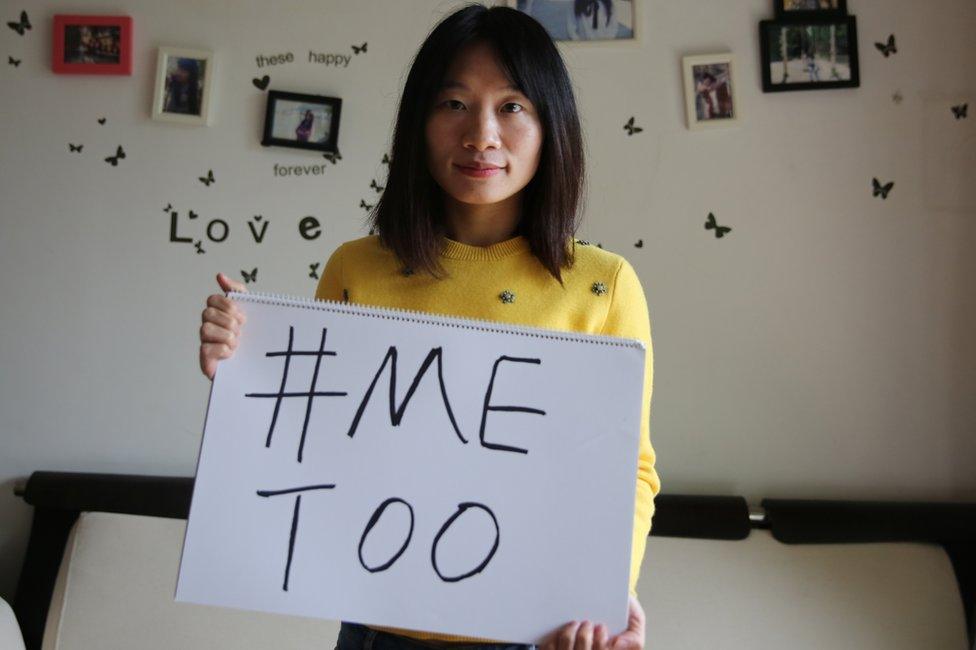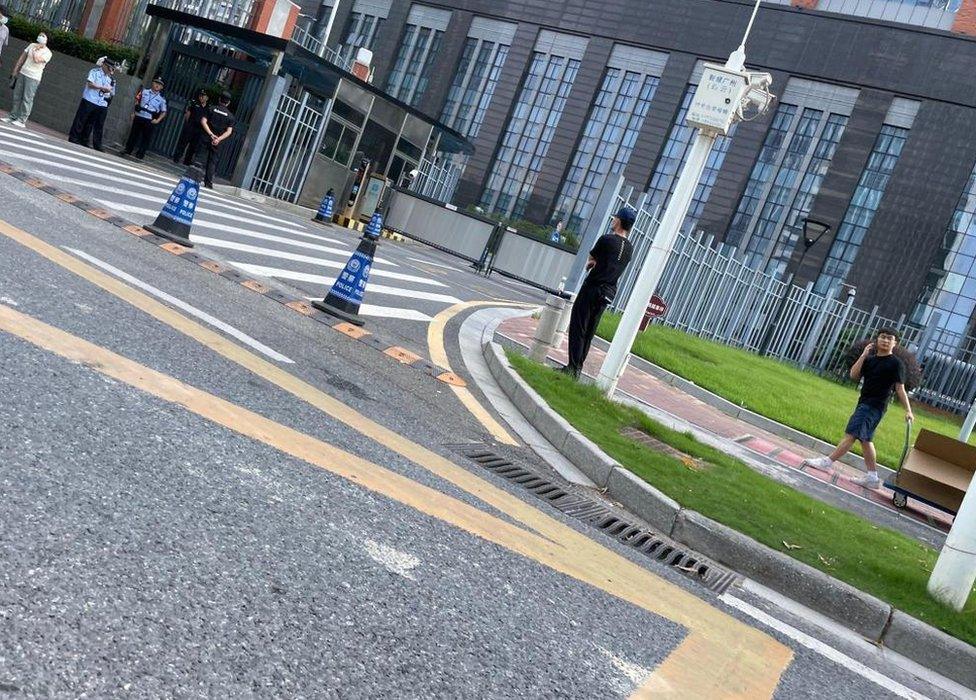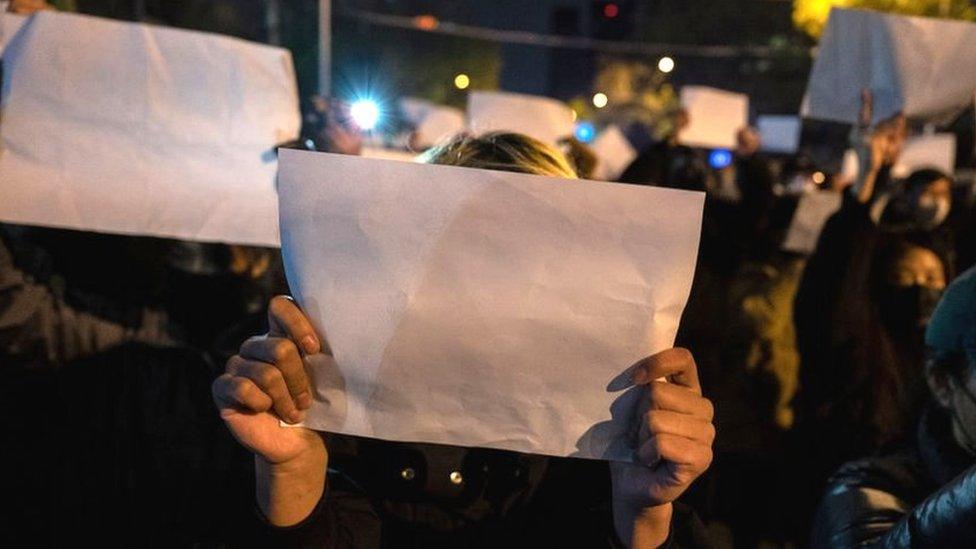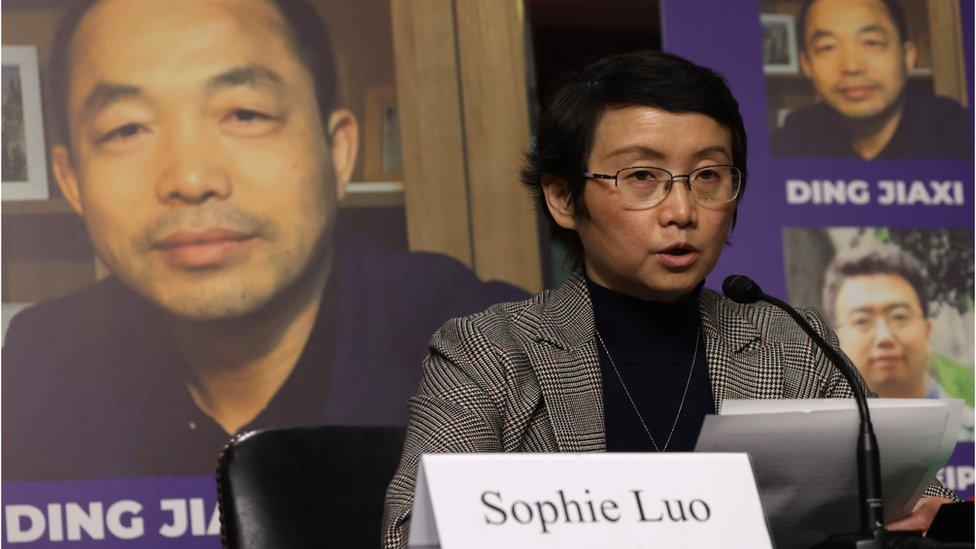China MeToo activist stands trial for subversion
- Published

Sophia Huang Xueqin, a prominent #MeToo activist in China, mysteriously vanished in 2021
A leading activist in China's MeToo movement has gone on trial for subversion, according to campaigners.
Journalist Sophia Huang Xueqin appeared in court in the southern city of Guangzhou on Friday with her co-accused, labour campaigner Wang Jianbing.
The two were detained in 2021 as part of China's wide crackdown on activists.
Rights groups have raised concern over their condition while in detention.
Ms Huang, 35, had been sleep deprived and malnourished, a friend told news website Radio Free Asia.
Friday's hearing proceeded under heavy guard, with authorities surrounding the court house with a fence, said the spokesperson of a group that is campaigning for their freedom.
"There's a very heavy police presence around the court today because of the trial," said the spokesperson, who asked not to be named and is also a friend of Ms Huang and Mr Wang.
A family member of Ms Huang was seen entering the court building, the spokesperson told the BBC.

Picture provided by the spokesperson of the campaign to free the activists appears to show heavy police presence around the court
Ms Huang, a freelance journalist, was a prominent figure in the MeToo movement in China, sparking the first MeToo case in 2018 after she helped a graduate student go public with accusations against her PhD supervisor.
Ms Huang also wrote about her experiences on workplace sexual harassment while working at a Chinese news agency.
Many advocates for gender rights and social causes in China choose to remain anonymous and are accused of being "agents of hostile western forces" by state media and nationalists online.
Mr Wang, a strong supporter of gender rights, is better known for defending labour rights and helping workers with disabilities find legal support.
The two were arrested in Guangzhou on 19 September 2021 while travelling to the airport. Ms Huang was on her way to the UK to begin a master's degree on gender violence and conflict at the University of Sussex when she was detained. Mr Wang, who was was seeing her off, was arrested along with her.
A BBC Eye investigation in 2022 found that both were being held in solitary confinement, detained in secret locations known as 'black jails'.
Sentiments on Chinese social media toward them have been split, with supporters calling for their release."It's been two years, it's time!" said one user.
But there also those who are critical of the feminist movement, with one user saying: "I hope they get a heavy sentence."
Calling them a part of the "courageous wave" of younger Chinese activists, Amnesty International deputy regional director for Asia Sarah Brooks said that Ms Huang and Mr Wang had been "targeted" by a government that fears organised dissent.
"These baseless charges are motivated purely by the Chinese authorities' relentless determination to crush critical voices. But activists in China refuse to be silenced despite the serious risks of raising their voices to address so-called 'sensitive' issues," Ms Brooks added.
BBC Eye investigates the disappearance of Sophia Huang Xueqin
Related topics
- Published18 February 2023

- Published10 April 2023
